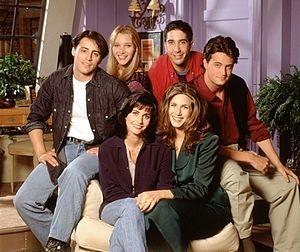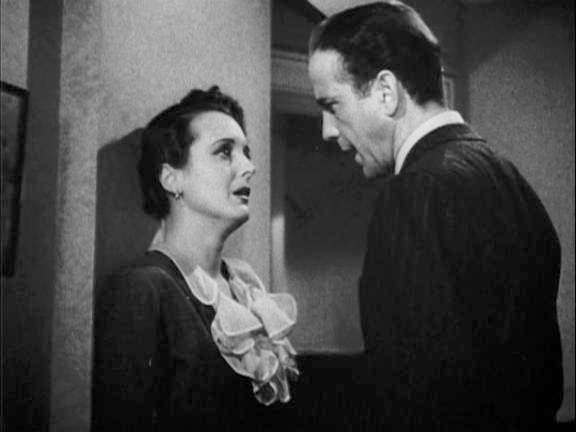 |
| Jackie Sherbow |
We SleuthSayers are very fond of the ladies at Dell’s mystery magazines. A
name that often arises is that of Jackie Sherbow. Jackie works as the
Senior Assistant Editor for Alfred Hitchcock's Mystery Magazine and Ellery Queen's Mystery Magazine.
She's been exclusively employed by the magazines since 2011, and her
previous jobs at Dell Magazines spanned from customer service to
subsidiary rights. She also writes poetry and her work has appeared in Newtown Literary and at Go Places.
Today’s article is aimed more at writers than readers, but readers might find themselves enjoying the insider's view. Please welcome Jackie Sherbow here to provide tips about submissions.
Today’s article is aimed more at writers than readers, but readers might find themselves enjoying the insider's view. Please welcome Jackie Sherbow here to provide tips about submissions.
— Leigh Lundin
Behind the Submissions Scenes at AHMM and EQMM
As the senior assistant editor for AHMM and EQMM as well as a writer, I have firsthand experience with both sides of the submissions process. My time working at Dell Magazines predated my first experience with sending work anywhere, so I’ve always tried to remind myself when addressing the unknown editorial staff of various publications that they are—like myself, Janet Hutchings, and Linda Landrigan—human. That doesn’t always assuage the hesitance, anxiety, and general unease (“just click send!”), that can come with submitting your work and waiting for a response, but hopefully my experiences shared here can help demystify the operation behind the scenes, at least at EQMM and AHMM.
I’ll start off by saying that it’s hard to proclaim any hard and fast commandments about what not to submit. Every submission (depending on the targeted magazine) is read either by me, our Editorial Administrative Assistant, Linda, or Janet. So if the plot works and interests us, the characters are intriguing and believable, or (yes, or) the voice is compelling, your piece is likely to get at least a second look.
Here are some words about the types of stories that we see a lot of but are less likely to make it through. Sometimes after a few hours of slush reading I feel like I need to take a hot shower. Why? Well, mysteries and thrillers are bound to have violence. But the violence needs to be purposeful, not gratuitous. Violence for violence’s sake—and violence that outweighs what we know about a character and their motivations—usually doesn’t cut it. A piece that reads only as a twisted, gory revenge fantasy isn’t likely to make it through.
The same idea goes for supernatural, fantastical, and science-fictional elements. Both magazines have published plenty of pieces with these motifs. But the rules of the tale’s world need to make sense and remain consistent, and there still needs to be a crime or mystery. The otherworldly elements need to fit in with and enhance the mysterious, puzzling, or criminal aspects of the story, not overwhelm them.
The types of characters who appear most often in the submissions piles are criminal and/or adulterous spouses. For AHMM, we see a lot of hardboiled private eyes and genius serial killers, and for EQMM, we see a lot of hit men. This doesn’t mean we don’t want to see these folks, and they certainly do appear in the magazines, but they can’t just be a reiteration of what we’ve already seen. Invoking genre conventions can work well in homage or as pastiche, but it can’t be all there is to the narrative.
What we don’t see a lot of, by the way, are classic mysteries. (How’s that for a clue?)
About those cover letters: If you’re comfortable with it, good marketing probably doesn’t hurt you. But if you’re spending a lot of time thinking about that special “thing” that will get you through the door, it’s better that that “thing” be in your work itself than in your cover letter. There are no magic words or pass codes to figure out. A clever or friendly letter is fine, and of course feel free to let us know where you’ve been published and if someone sent you our way. But spend more time polishing your piece’s prose than coming up with a way to woo the editors. That can feel like wining and dining, and in the end, your yarn ends up in the same place as the rest of them.
One among the myriad of evolving norms in the game is the growing popularity of e-submissions. While EQMM was already on-board with electronic submissions when I began as editorial assistant, AHMM is currently making the transition. The e-subs process makes it easier (and less costly) to submit and also makes it easier for us to keep track of submissions. Ultimately, though, the effects are broader.
For one thing, since it’s easier to submit, it’s easier to submit … a lot. That’s fine, and it’s good to try and try again. But if you have dozens of stories stuffed in the pipeline, ready to send in every week or so, your writing might instead benefit from some time spent editing and getting feedback. It’s not unheard of that Janet or Linda might write back with some criticism or suggestions, or offer to look at a revision, but even a form rejection tells you something about the way your writing could (or couldn’t) fit in with a publication. Revisiting your work before continually submitting takes thought, and that thought is fruitful and necessary.
Another change that e-subs systems brought is the visual homogenization of every offering. While small identifiers and quirks of style are discernible with hard-copy manuscripts, submissions seen on a computer screen or an e-reader look basically the same. This could be taken negatively, since brightly colored paper or a fancy paperclip won’t catch our mail-opener’s attention (please refer to above notes about cover letters and marketing!). But it can also be a good thing. Your story is judged by … your story! Bare bones, and your words only.
Speaking of your words: Be aware, in your writing, of your voice. As much as a “hook” of an opening line can make us want to keep reading, so can an authoritative and authentic tone. Plenty of interesting characters and creative plots that crop up in the submissions fall flat when that’s missing. On the other hand, authors whose stories are lacking in plot or character might receive an extra look and perhaps a personal response if the voice is gripping enough.
As some final advice, I’ll iterate something that has proven true for me as both an editor and a writer: The best way to ready yourself to submit to the magazines—or wherever you’d like to submit—is to read them. Better than I could explain, those pages will tell you what sort of work fits in, as well as provide influences that will only help out.
To read more by Jackie on the topic, visit Alfred Hitchcock's Trace Evidence and Ellery Queen's Something is Going to Happen for Tuesday, the 9th of September.































